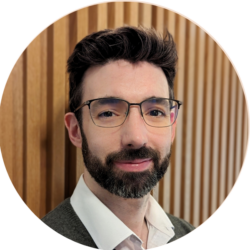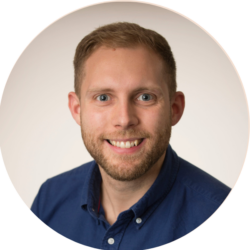Turing Fellows and Researchers
“Turing Fellows are the next generation of world leading researchers, with proven research excellence in data science, artificial intelligence, or a related field, and research interests aligned to the Turing’s Science and Innovation priorities”- The Alan Turing Institute
Turing Fellows are established scholars with proven research excellence in data science, artificial intelligence, or a related field. They contribute to new ideas, drive collaborative projects, secure external funding and provide research expertise which is actively connected with the Turing and its network of universities and industry partners.
The scheme looks to support and develop researchers with the aim of expanding the data science community in the UK and providing relevant expertise in the areas of the goals and objectives set out in the new strategy.
New calls for Fellows will be released in Spring each year, with each call having a focus on a different strategic priority.
What are the benefits of becoming a Turing Fellow?
As well as providing access to an expanding data science and AI research community, the benefits include physical access to the Turing in London, invitations to bespoke Turing events and the annual Turing Fellow Symposium, travel and expense allowance to the Turing or to other Turing University Network, a recognised title, the opportunity to set up and lead, or participate in Turing Interest Groups, and more.
Meet our current Turing Fellows at Leeds University
 Associate Professor Peter Tennant
Associate Professor Peter Tennant
My research is focussed on trying to bring contemporary causal inference methods into the health and social sciences. Causal inference goes beyond the reach of traditional data science and AI approaches, to help us understand how different factors influence each other and hence how we might incite change.
I first became a Turing Fellow to find more people with an interest in causal inference, and in turn to raise awareness of, and grow expertise in, within the UK. In 2020, I established the Institute’s Causal Inference Interest Group, which aims to identify and build capacity across the country. The group brings together researchers from multiple disciplines working across academia and the public and private sectors. Our next six speakers, for example, come from computer science, criminology, biostatistics, epidemiology, psychology, and veterinary sciences.
This year, I aim to continue this work and am particularly excited to be introducing causal inference to the entire workforce at the Defence Science and Technology Laboratory. Elsewhere, I am also hoping to find new opportunities to engage in outreach and public engagements. In the past, I have contributed to several such activities at the Turing Institute, as a returning podcast guest and a performer in the Bright Club comedy event, and would be thrilled to do more of this again in the future.
 Dr. Luisa Cutillo
Dr. Luisa Cutillo
My research revolves around the themes of Data Science Education and Omics data modelling. I am a member of two interest groups in Turing: Data Science Education, and Omics data generations and analysis group. I take part to initiatives of both groups, and I co-organized events with the Data Science Education and Skills groups and I acted as a mentor for some of the group activities.
I became a Turing fellow to enrich my scientific network, gain wider national and international visibility and access cutting edge initiatives sponsored by the ATI.
My plans over the next 12 months as a Turing Fellow are to build on the results of some of the initiatives that have been successful in coordination with Turing. Examples are the DS&AI educators local group activities and the UK-Italy Trustworthy AI Visiting Researcher Programme that I will start next January. This project is related to Integrating RNA-Seq Data Analysis with Data Science and AI for Healthcare Transformation.
 Professor Nik Lomax
Professor Nik Lomax
My interest and expertise lies in creating high resolution demographic models which interface with domain specific applied models for land use, transport, health, infrastructure and the built environment. As such I produce Digital Twins of integrated systems which can be used to examine and predict how cities and regions develop; estimate/project the current and future needs of the populations who reside in them; and investigate emergent phenomena that require data from multiple domains.
As a Turing Fellow I developed SPENSER, a high resolution population projection model, which now forms the core of the Turing Synthetic Population Catalyst and has been coupled with numerous other domain specific models including transport, land use and disease spread.
The Turing offers the opportunity to co-develop research in a multidisciplinary collaborative environment, meaning I can apply my methods in a wide range of areas, drawing on the latest development in AI and data science. This is why I became a Turing Fellow and I will continue to take advantage of these opportunities moving forward: developing multidisciplinary research teams and applying innovative methods to applied problems.
